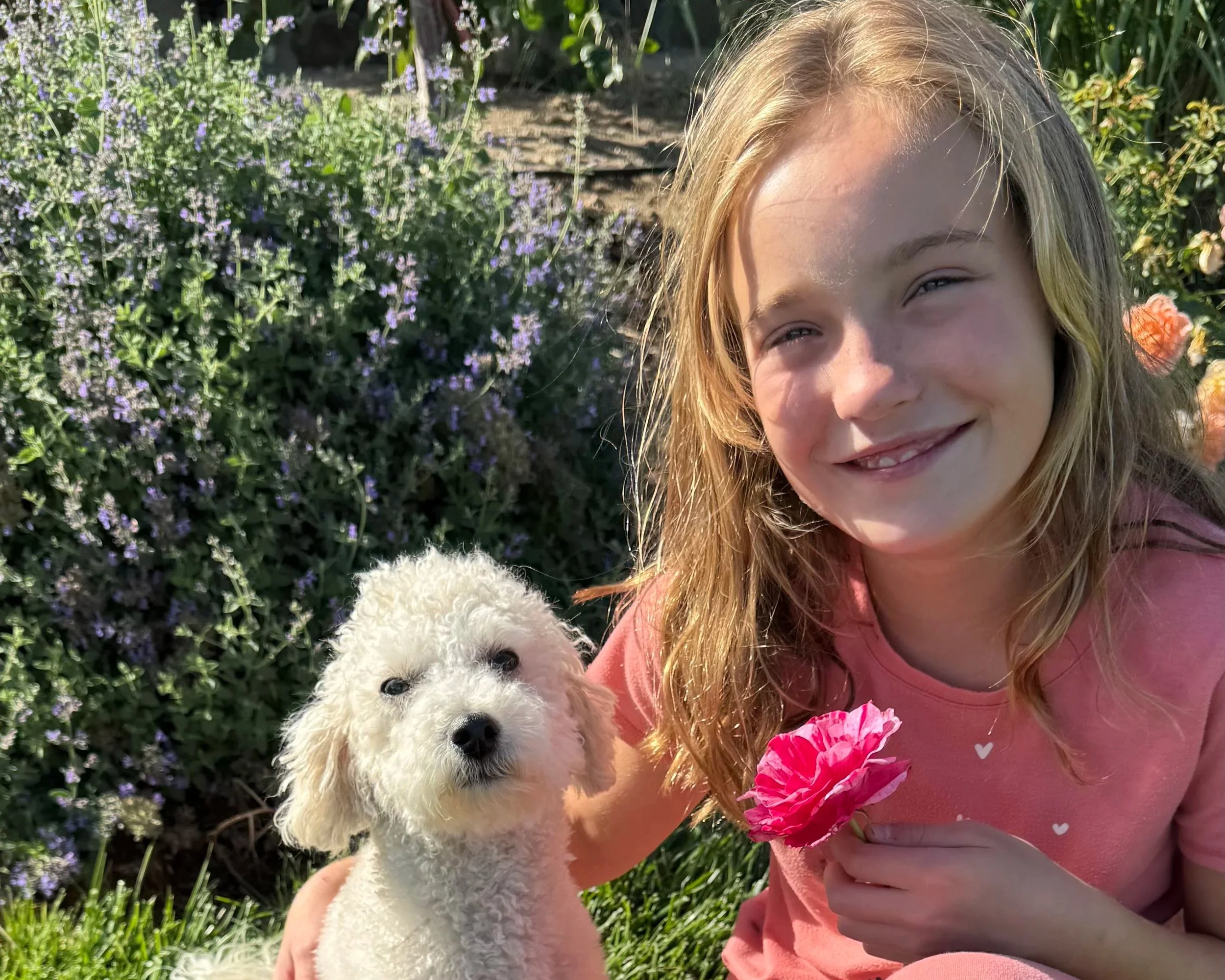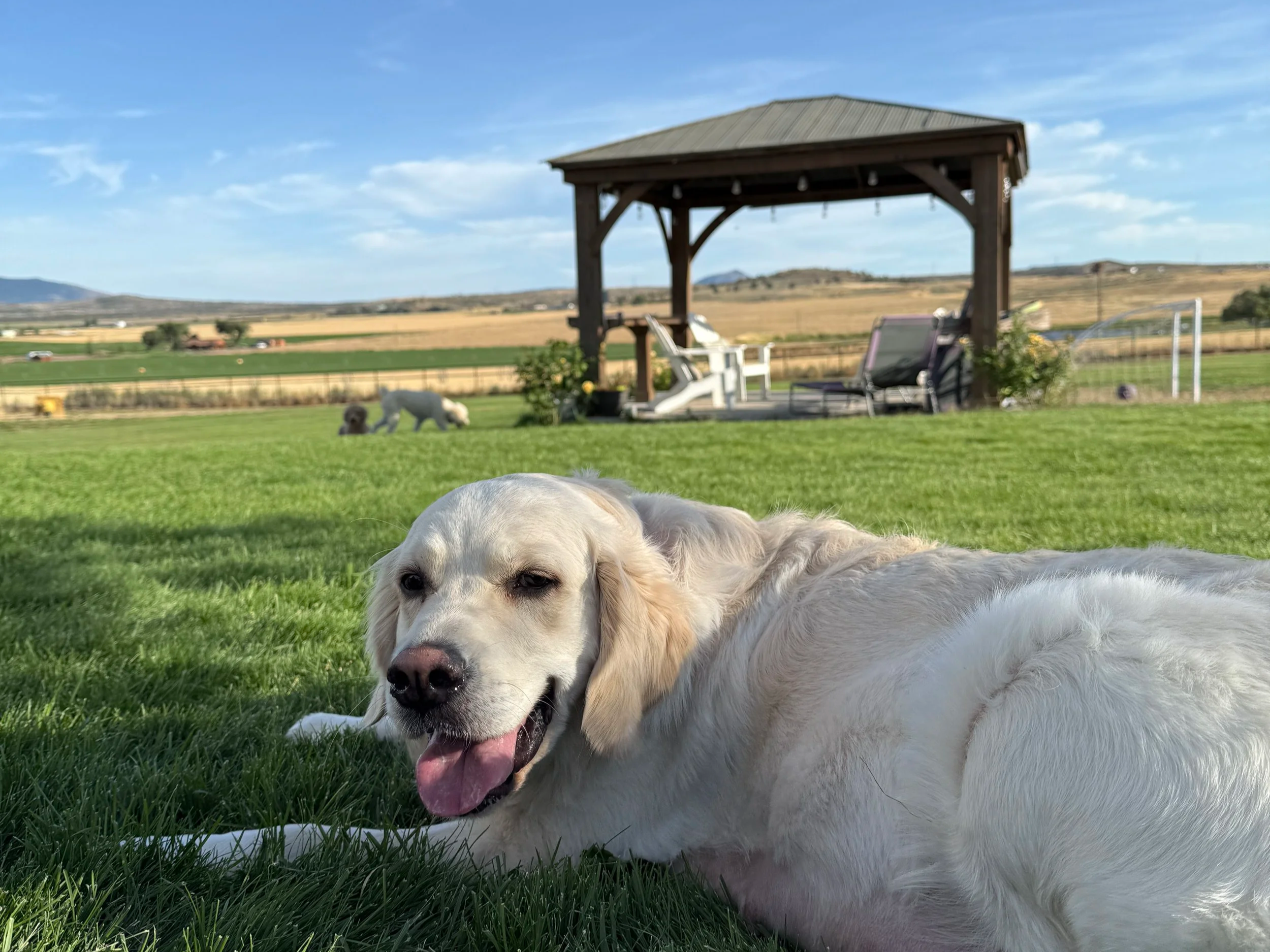Our Five Puppy Books
We get it; raising a puppy can be overwhelming.
To be more specific, it can be overwhelming to wade through all the different books, reels, podcasts, videos, and other media when you’re trying to find good information about how raising a puppy so that they can be happy, healthy, confident, and friendly. How do you decide where to focus your attention, and determine the difference between what’s valuable, and what’s noise. Much like parenting, we get that people have different values, priorities, and outlooks, and that there isn’t one formula that works perfectly for everyone. So as a place to start, we want to share the five best puppy books we’ve found to date. These books have different focuses and outlooks, and can even contradict one another from time to time. However, they also offer a wide sampling of a broad approach that helps puppy owners nurture their dogs into their best form. So here they are!
For both dogs and humans, bonding through life creates trust.
The Art of Raising a Puppy (by The Monks of New Skete)
Written by an experienced monastic community of dog trainers, this book provides a holistic guide to raising a well-adjusted, well-mannered puppy. It emphasizes patience, consistency, and respect for the dog’s nature while offering practical advice on training, socialization, and bonding. We’ve been recommending this book for years to our puppy families, and our families have given us some great feedback on it!
Some Key Takeaways:
Establish routines and structure early to build security and confidence.
Socialization is critical in the first months — introduce your puppy to varied environments and people.
Positive reinforcement fosters trust and cooperation more effectively than harsh corrections.
Crate training, when done properly, aids in housebreaking and provides a safe den.
Bonding with your puppy through shared daily experiences creates lifelong trust.
What a dog learns in the first four months of it’s life has a lasting impact on the rest of it!
Puppy Brain (by Kerry Nichols)
This book explores the science of how puppies’ brains develop, focusing on critical learning periods, emotional growth, and how early experiences shape lifelong behavior. It blends neuroscience with practical training tips for raising confident, well-adjusted dogs. One of the reasons why I love this book is because it helps me better theoretically understand all the changes that is happening in our puppies’ brains, which can be so easy to miss!
Key Takeaways:
The first 16 weeks are a “super-learning” phase — maximize positive exposure during this window.
Stressful or negative experiences early on can have long-term impacts on behavior.
Gentle, consistent training strengthens neural pathways for learning.
Play is not just fun — it develops problem-solving skills and emotional resilience.
Building a sense of safety and predictability supports healthy brain development.
A dog can learn and understand better when they get consistent cues from their trainer.
How Dogs Think (by Stanley Coren)
Summary: Coren examines canine psychology, drawing on science, history, and anecdotes to reveal how dogs perceive, learn, and communicate. The book highlights the similarities and differences between human and canine cognition. I can be tempted to overly humanize our dogs, and Coren gives some helpful understanding and insight in navigating the similarities and differences.
Key Takeaways:
Dogs interpret the world primarily through scent and body language, not words.
Breed tendencies influence problem-solving approaches and behaviors.
Dogs are capable of basic reasoning and emotional understanding, though not human-style logic.
Consistency in human cues helps dogs understand what’s expected.
Miscommunication between humans and dogs is often at the root of behavior issues.
Puppies - and dogs - thrive in an environment rich in care, stimulus, and activity.
The Forever Dog (by Rodney Habib & Dr. Karen Becker)
Summary: This book explores how diet, lifestyle, and environment influence the health and lifespan of dogs. Drawing on research and global traditions, the authors argue that fresh food, mental stimulation, toxin reduction, and proactive care can add years of vitality to a dog’s life. Discussions surrounding dog nutrition can be just as divisive as human nutrition, so this book has given me a wider perspective and more resources in my journey towards and informed perspective on this precarious field.
Key Takeaways:
Fresh, minimally processed foods support longevity better than ultra-processed kibble.
Daily movement, play, and nature exposure strengthen both body and mind.
The gut microbiome is central to health; variety and fiber nurture it.
Limiting toxins (household chemicals, lawn treatments) reduces long-term health risks.
Preventive care — dental hygiene, lean weight, routine checkups — protects against age-related disease.
Consistent and timely training leads to the most fruitful canine training programs.
How Dogs Learn (by Mary R. Burch & Jon S. Bailey)
Summary: This book applies behavioral psychology to dog training, focusing on principles of operant conditioning, reinforcement, and learning theory. It bridges academic research with real-world training applications. The arena of dog training can be a source of contention and charlatanry. Here again, Burch and Bailey offer some empirically grounded approaches in how to train our canine friends, which is deeply valuable for our puppy families.
Key Takeaways:
Dogs learn best through reinforcement (rewarding desired behaviors).
Timing and consistency are critical in shaping reliable behaviors.
Punishment often leads to confusion or fear, while positive reinforcement builds trust.
Classical conditioning explains how dogs form emotional associations (e.g., leash = walk).
Systematic training builds complex behaviors step by step from simple foundations.
Closing Book Thoughts
There they are! In our opinion, five of the best dog books out there. They each contribute to paint a picture of the complex relationship with dogs and their surrounding worlds, including their owners and caretakers most of all. We have a profound impact on our fur friends, from cradle to grave. I think it invites us to relate with our dogs in a more intentionally conscious way, from what they eat, to how we training, and where we stand.
There truly are an incredible amount of books on dogs and how to approach their training and rearing, so we know there is a vast amount of excellent dog books out there that we haven’t come across yet. However, these are many of our favorite dog books to date, and we let our puppy families know about them. In their own way, each book provides helpful and practical information on our canine friends, which hopefully promotes flourishing all the way around.
Do you have any favorite dog books? We’d love to hear about them! Send us an email, or dm us on any of our socials.
May your dogs and you grow in friendship and flourishing!
Grace and Peace,
Jay and Erin






